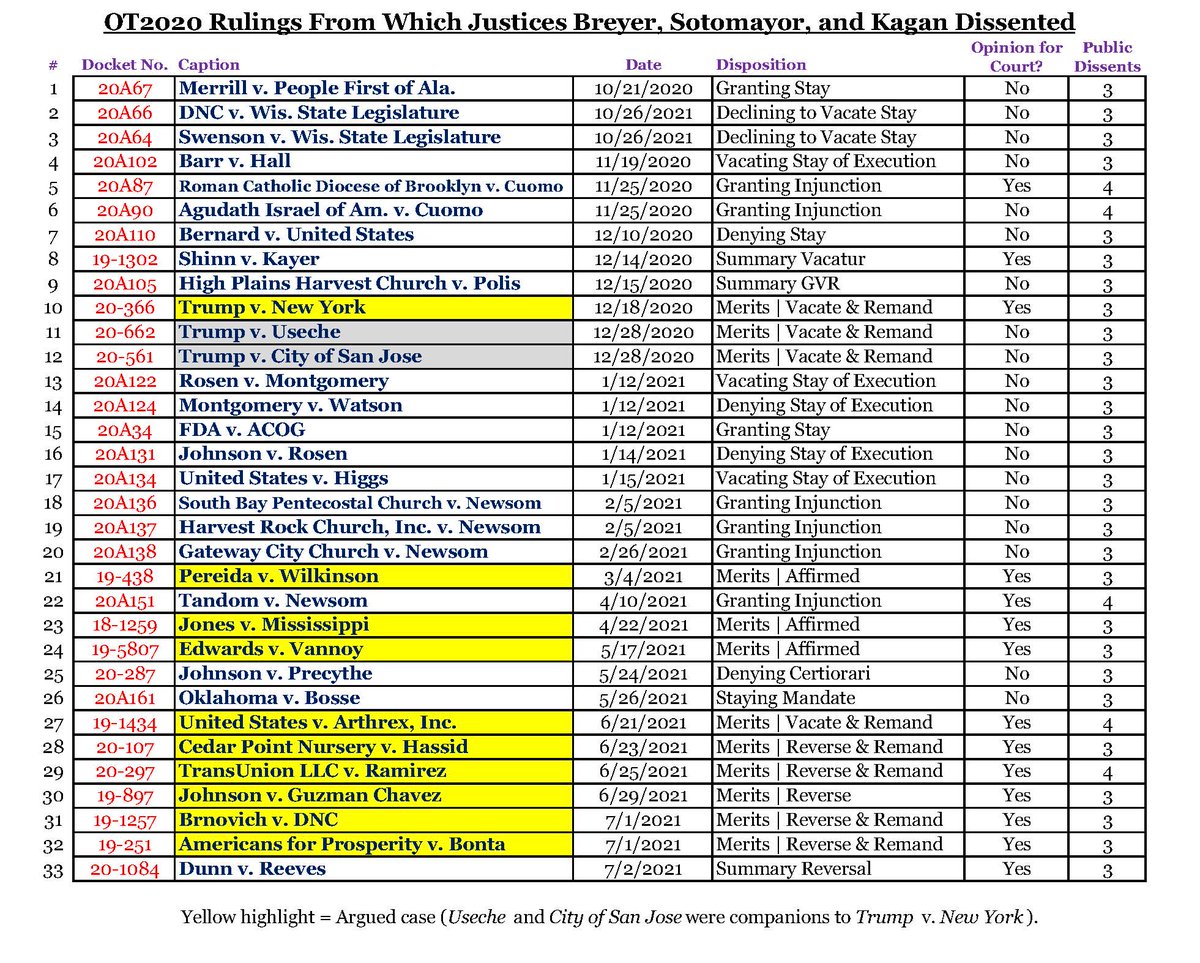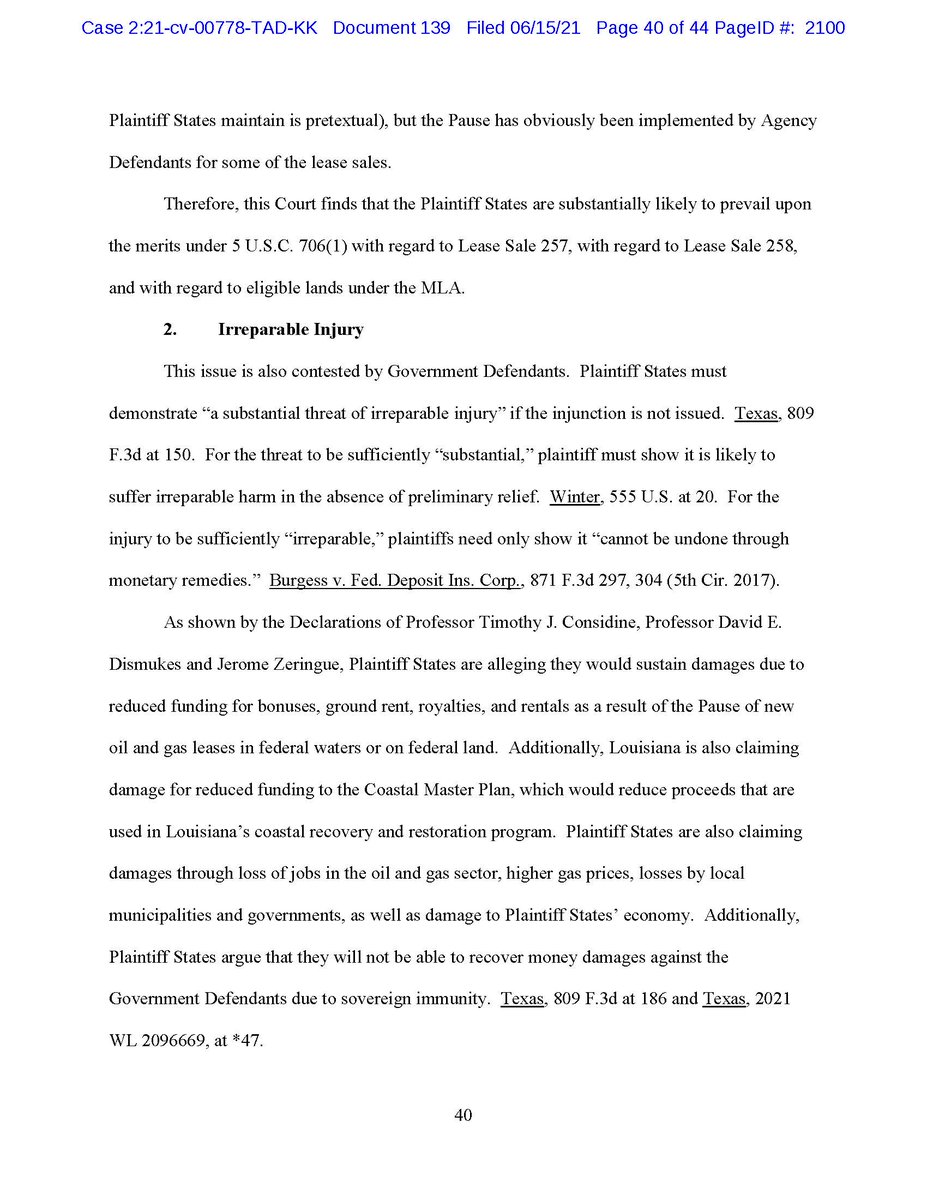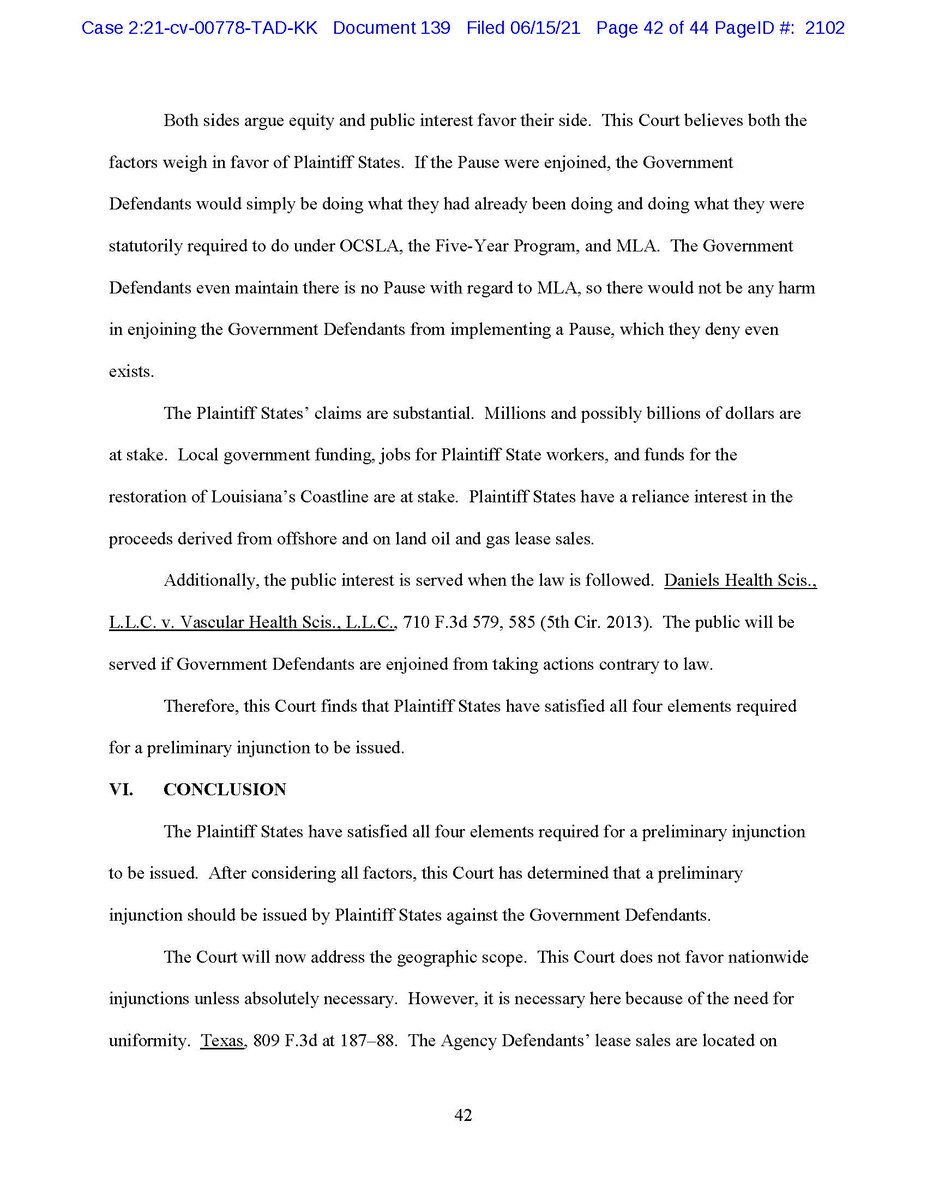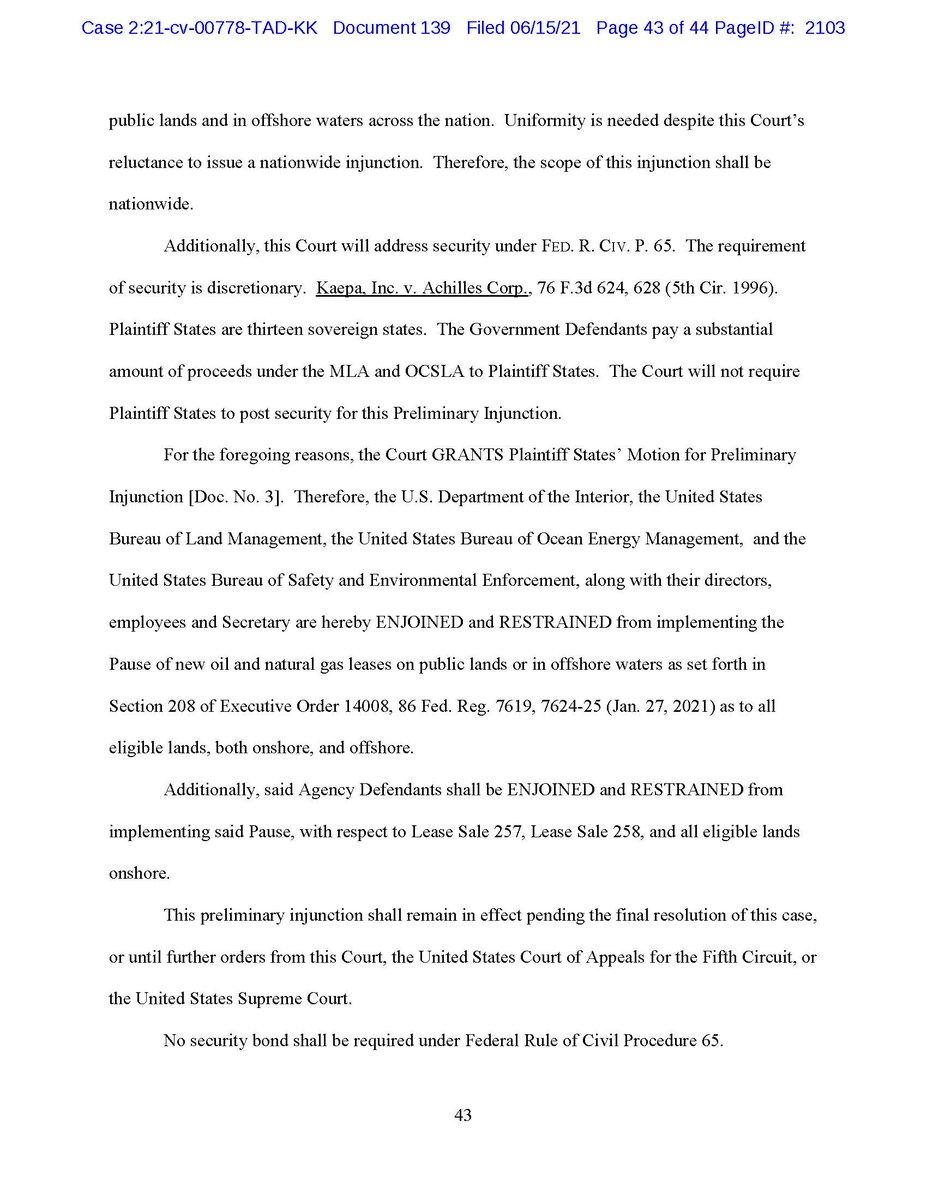
Once again, not including the shadow docket in #SCOTUS data yields a very different statistical snapshot.
There were *18* shadow docket orders this Term from which *only* the three Democratic appointees publicly dissented. Three more were 5-4 with the Chief Justice joining them.
There were *18* shadow docket orders this Term from which *only* the three Democratic appointees publicly dissented. Three more were 5-4 with the Chief Justice joining them.
https://twitter.com/sethstern/status/1412409337927065611
To be sure, it's 18 out of a larger denominator. But four of the 18 were dissents not just from orders, but from published opinions of the Court.
At the very least, it seems to me that we ought to be including *those* in any broader assessment of the voting lineups across cases.
At the very least, it seems to me that we ought to be including *those* in any broader assessment of the voting lineups across cases.
I don't mean to pick on the fantastic @KimberlyRobinsn. Focusing on argued cases is something that the entire #SCOTUS press corps (and, indeed, the *Court*) does in its data. But the last few years have driven home why that's just not a sufficient picture of the Court's docket.
• • •
Missing some Tweet in this thread? You can try to
force a refresh








